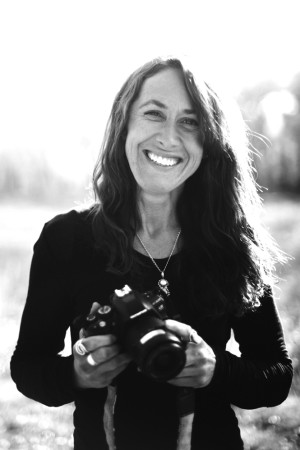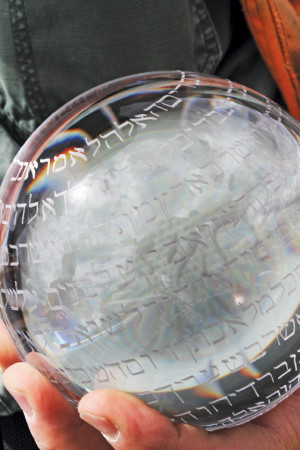By Abby Quillen
As many know, my dad died last summer, and I’ve been compiling an anthology of his work. By November 1, Deeper into the Heart of the Rockies will be available on amazon.com and at select bookstores.
Occasionally, over the months of anthologizing, I’ve needed to access my dad’s email account to retrieve an address. It’s creepy to see press releases, pitches, newsletters and advertorials still piling up there, five or six of them a day with cheerful salutations – “Hello Mr. Quillen!” “Congratulations!” I haven’t read much of my dad’s actual correspondence, because it still feels like I’d be violating his privacy. But occasionally I’ll click on a message, and there’s my dad’s voice on the screen – unpolished, off-the-cuff, typos and all.
Months ago, I happened to click on a 2009 message from a junior at Arapahoe High School. “I am going to be taking a class called AP Language, and for our summer assignment we are supposed to follow a columnist. My mom recommended a couple of people and after reading different columns I decided to follow you. Part of the assignment is to write a brief biography about the columnist we are following, and so I was wondering if you’d be willing to answer some simple questions for me. … Thanks for your time!”
My dad corresponded with hundreds of people, including those who vehemently disagreed with him. So, of course, he responded to the student promptly and agreed to help with her assignment. Their ensuing exchange captures so much about my dad that I’ve gone back to read it several times over the months.
Most notably, when the student finished her ten-sentence biography and sent it for my dad’s approval, he asked her to add one line: “Quillen is married to his wife, Martha, and has two daughters living in Oregon.”
“He was above all a family man,” Allen Best writes in his foreword to Deeper into the Heart of the Rockies.
It’s true – my dad seemed to genuinely like parenting. He didn’t have any of the angst about it that my generation seems to specialize in; he likely never read a parenting book or attended a parenting workshop. And he had little tolerance for the meme that children are fragile or should be censored from the world. “People in hell want ice water,” was his favorite phrase when my sister or I begged for a new Cabbage Patch Kid or My Little Pony.
But he liked to hang out with us, and he boasted that he had more of an Ozzie and Harriet family life than most Focus on the Family diehards. He helped us with homework, read to us and played board games. We ate around the dinner table every night and went for family hikes on the weekends. Of course back then, despite the high divorce rate, I didn’t really get that parenting is tough stuff, that it can be a fight to just pay the mortgage and keep little kids from darting into traffic or licking the cat, let alone to impart any real wisdom to them. It was only after I had my own kids that I got any of that.
“Your dad changed my life,” one of his fans wrote to me. “He taught me how to think.”
I’m sure my dad would take that as a sublime compliment. Above all, he seemed to want my sister and me to be able to think for ourselves. From kindergarten on, I was an expert at acing tests and scoring good grades. I toted home certificates and engraved dictionaries. But my dad had little regard for such things. He saw danger in spending decades learning to parrot others’ ideas or write in bloated academese. He wrote notes to my English teachers challenging them for teaching the standard five-paragraph essay. “Nobody gets paid to write like that.” For my 16th birthday, he gave me a copy of Civil Disobedience by Thoreau.
The Center of the American West, which is holding an event for the release of the anthology, called my dad “the preeminent Western public intellectual.” I imagine he would be thrilled at the recognition. He was certainly an intellectual, although not in the way we tend to think of them – cloistered professors in ivy-covered offices. He was raised in a blue -collar neighborhood, and he loved small-town life. He ambled downtown every day and shot the breeze with plumbers, builders, bartenders, business owners, lift operators, rafters, librarians, lawyers and city councilmen. This daily contact with all variety of working people is perhaps unique to small towns, and it shaped the way my dad thought about the world.
He read rapaciously. Our house overflowed with books and stacks of magazines. My dad routinely read The Atlantic, Newsweek, Time, The Economist, The New Yorker, The Wall Street Journal and scads of other publications. Poets, writers, historians and thinkers from around the state regularly stopped by, often unannounced, to sit around our kitchen table, drink coffee, tell stories, and discuss politics. “I have such fond memories sitting around your Salida kitchen trading brilliant bonmots with some of the best raconteurs I’ve yet to meet,” the poet Art Goodtimes recently wrote to me in an email.
I don’t want to glorify my childhood or my parents. I don’t think my dad would appreciate it anyway; he wasn’t much for pretense. But like most children who’ve gone on to have children, I know my parents gave me the world, and I’m eternally grateful to them for encouraging me to think.
I’m also thankful that my dad spent his life doing work he loved. He might have chosen another line of work that would have been easier than facing the blank page day after day. But instead, he dedicated himself to mastering a form that displayed his bottomless creativity, his ravenous curiosity, his “colorful” – as so many of the tributes warmly called it – personality, and his incredible intellect. And through that work, he continues to challenge our assumptions and encourages us to think and to parse the party line.
It must be a good sign that I’ve now read Deeper into the Heart of the Rockies a half a dozen times and still find myself laughing out loud and reading sections to my husband.
“What an astonishing thing a book is …” Carl Sagan said. “One glance at it and you’re inside the mind of another person, maybe somebody dead for thousands of years. Across the millennia, an author is speaking clearly and silently inside your head, directly to you. … Books break the shackles of time. A book is proof that humans are capable of working magic.”
This book and the way it came into the world – with the generous contributions of so many Central Coloradans – is certainly proof to me that magic exists.
Abby Quillen writes, edits and publishes from her home in Eugene, Oregon. You can find her online at abbyquillen.com. Deeper into the Heart of the Rockies will be available November 1 at amazon.com and select bookstores.


